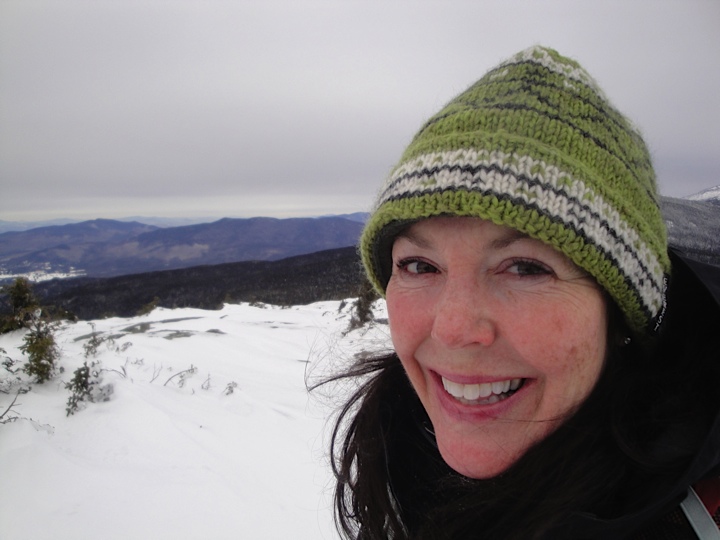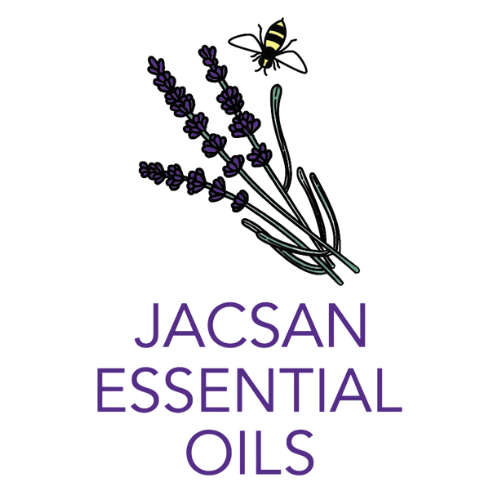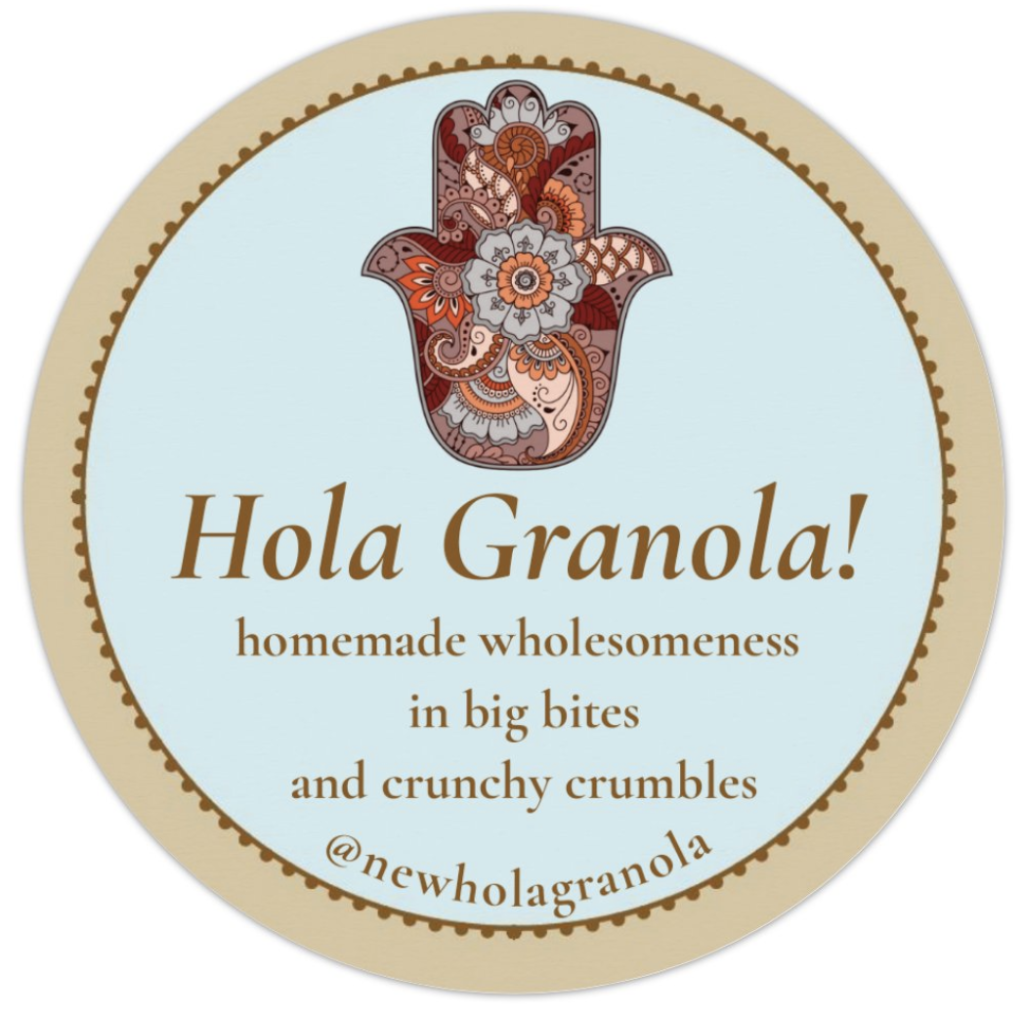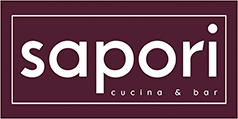Speaker 3: My guest today is Calli McPherson, and she is the owner and founder of William James Gifts here on Hancock Street in Quincy, Santa. And, Callie, first of all, thanks for taking the time to be with us today.
Speaker 4: Of course. Thank you for having me.
Speaker 3: Before we get into all the cool stuff that you have in the shop here, tell us a little bit of the story. How did you start this business Why is it called William James Gifts, et cetera
Speaker 4: I’ll start with the name. The name is William James Gifts. It’s named after my kids. I have two boys, it’s their middle names. So wanted it to represent our family is very much a family business. So that’s where the name came from. The business itself started during the pandemic. We started in about April of 2020. I started doing gift baskets from our home, you know, so a great time to, to start a business.
Speaker 3: . I was gonna say, did you start it because of the pandemic or you were planning on it and then the fun Black Swan of the pandemic decided to send down on all of
Speaker 4: Us. Unfortunately, it was a planned thing. And, the pandemic hit and we just, you know, it was like, all right, we’re home with the kids, let’s just roll with it. So
Speaker 3: You have a really beautiful retail space here. Thank you. Did, did you have the retail space already Or was this a home-based
Speaker 4: Business It was a home based business. Luckily, luckily we did not plan the retail space right away, so I did the home business. So we did gift baskets from our home shipping all over the world for about a year. And then we opened our retail space in October of 2021. Wow. So we, luckily we’re not in a retail space when the pandemic hit, however, we did start a business during the pandemic. So for better or worse
Speaker 3: Fortuitous timing, regardless. Exactly. Well, bef that’s cool. I want, I want to talk more about that, but before we go into even more, I do this thing with some guests called the lightning round. Yeah. And these are 11 random questions that you have no idea what they are. Okay. But it’s gonna help our, our listeners get to know you a little bit there.
Speaker 4: All right. Fabulous. Ready
Speaker 3: Yes. Here’s number one. Sweet or savory.
Speaker 4: Oh, savory
Speaker 3: Number two. Crunchy cookie or chewy Cookie.
Speaker 4: Chewy.
Speaker 3: All right. You’re on a deserted island. You can only have one tool. What one tool would that be and why
Speaker 4: I am gonna go hammer, because I feel like it’s gonna help me maybe open some food, but also maybe build some sort of shelter. Okay. There we go.
Speaker 3: Very cool. favorite vacation spot
Speaker 4: Portugal.
Speaker 3: Nice. Okay. Thanksgiving or the 4th of July.
Speaker 4: 4th of July.
Speaker 3: All right. Summer or winter
Speaker 4: Olympics Winter Olympics.
Speaker 3: Coffee or tea
Speaker 4: Tea.
Speaker 3: Cape Cod or New Hampshire slash Maine.
Speaker 4: Cape Cod.
Speaker 3: All right. For New Year’s Eve,
Speaker 4: ,
Speaker 3: Times Square or small gathering at home.
Speaker 4: Oh, small gathering at home all the way. All right.
Speaker 3: And if you’re gonna go on a vacation, would you prefer museum or National
Speaker 4: Park National Park.
Speaker 3: All right. And if you’re gonna travel plane or road trip.
Speaker 4: Plane.
Speaker 3: All right.
Speaker 4: , really Yes. Yes. Two, my husband’s dismay. . I would much rather get on a plane, even with
Speaker 3: All that rigmarole that you gotta go
Speaker 4: To. Oh, yeah, absolutely. two kids in a, in a car is, is too much.
Speaker 3: Okay. That I can see. Yeah. Unless they’re sitting behind you on the plane kicking the back
Speaker 4: Of your shoes. Right, right. Yeah. A whole, whole different animal.
Speaker 3: Well, thanks for playing with that. So, you have some interesting focuses. I looked at your website and, and it’s William James gifts.com. Yes. And you have some interesting focuses. One is gluten free. Mm-hmm. , another thing that’s important to you is women owned businesses being absolutely. Your suppliers. Yes. Tell us the driving force behind both
Speaker 4: Of those. Yeah, sure. So I’ll start with the business piece of it. Everything in the store in on our website is all from small businesses. 80% of those are women owned businesses. when I started the business, it was incredibly important to support other small businesses through William James. And if I can do that through women owned small businesses is even better. I really, really believe in making an impact in your community through small business. And, you know, one way that we can do that here in, you know, the Quincy and surrounding areas, but we can then support other communities through the inventory that we sell here. So that’s the business piece of it. the gluten free piece, when we started the gift baskets, it was truly just food and it’s all gluten free because I have celiac, and as somebody with Celiac, I was not in any way comfortable selling food that I could not eat.
Speaker 4: I can’t vouch for how good it is or anything like that. And also, as somebody with Celiac, I know that it’s really difficult to sometimes find stuff that is gluten free and tastes good. Yeah. So I have been on a bit of a mission to find gourmet gluten free. Most of the stuff is different than you’re gonna find at the grocery stores. You know, our pasta is directly from Italy. We work with a lot of really small businesses to find really, really unique and special things, but it’s all really delicious and it’s just been really well received. There’s so many people that either have to avoid gluten for medical reasons or they choose to for a lifestyle. It’s really become important for a lot of people to have some place where they can walk in and they go, wow, I can eat anything that’s here, or I can buy for somebody. Anything that’s here is gonna be okay for them. And that’s not something that is around very often. So it’s been really cool.
Speaker 3: Now, is that why you decided to do gift baskets Or tell us how you decided to do that as opposed to open up a shop that sold just gluten-free groceries Yeah.
Speaker 4: To go way back. So I grew up in the Minneapolis area. My mom owns a gift store and has for the last 20 plus years, and she started with gift baskets. So the inspiration definitely came from her. The gift baskets were kind of her bread and butter starting her company. and so I had talked to her quite a bit before I decided to open the business, and she said, why don’t you start with that Because at the time, I was home with my kids and said, okay, well why don’t you start with that and see what kind of traction you can get with that. And then if you feel like you’re getting traction with that, then potentially you could look into the brick and mortar. So that’s kind of how it started. So inspired from my mom and, you know, we have a lot of, of great gluten-free foods, but I wasn’t ready to invest in a freezer and a, you know, a refrigerated section. You know, someday the dream is to be able to have a liquor license and be able to have great craft gluten-free beer. That’s the ultimate dream someday, but we’ll see if we get there. That’s
Speaker 3: Cool. Yeah. So you’ve been at this for a while,
Speaker 4: , you know, it, it feels like it.
Speaker 3: . Well, I, I, before we started this conversation, I told you some of my backstory mm-hmm. and that my family had a small retail at first. It started off as a stationary and office supply store with like pens and paper clips and three by five cards and photocopier. And we even had fax machines. Okay. Back then. Yeah. That’s how far back this goes. and then, you know, staples came along and Office Max came along and we moved fast and we started selling more greeting cards and we did in-house printing. So, you know, I, it’s not the same business, but it, it’s, it’s the same business. It’s absolutely, it’s just different widgets. Absolutely. with a different market niche. So that’s really cool. Tell me how you started your home-based business and how you transitioned to also having a retail storefront. And tell me what vehicles you used to market your business, and then I want to hear what that first sale felt like.
Speaker 4: Yeah. So when I started the business, you know, luckily for better or worse technology is where it is today, right And, you know, you can set up a website, you can set up a online commerce system fairly easily, right So actually , during the pandemic, you had a little extra time. So, you
Speaker 3: Didn’t just binge watch a series
Speaker 4: , not all the time. . I did a little bit of work here and there,
Speaker 3: Anyway. Yeah.
Speaker 4: But yeah, so, you know, I, I started with the online, getting the website kind of up and running, started to listen to some podcasts, do my research, talked to some people that were in business in the area, and kind of figure out like, okay, how do we get this started And then how do you go about getting in front of people so they know that you exist We did a lot of work with social media, Facebook, Instagram definitely helped to kind of get us in front of people. And then I am also part of a group that has a woman who does PR for small businesses and kind of teaches really small indie businesses how to get themselves pressed. And so we had a huge break in June of 21. we were featured on the Food Network. Oh, wow. and our gift baskets as it, you know, a great gift for Father’s Day. So that was huge for us. We got big national press out of it. so, you know, that that’s still one of the coolest things that happened. So, you know, we got some press from that and obviously some recognition. So that was a great thing that happened. And then, you know, a few months later it was kind of like, all right, now I’m feeling comfortable taking the leap into the brick and mortar.
Speaker 3: That’s a really cool break that you go.
Speaker 4: It was amazing.
Speaker 3: Amazing. Isn’t amazing how much reach, even all of these niche programs mm-hmm. have, there’s just so many people out there. Yeah. And it really doesn’t take a ton of folks. You just need a loyal following.
Speaker 4: Absolutely. Absolutely.
Speaker 3: that’s really cool. And one question. What, what podcasts do you listen to aside from the all about Quincy podcast
Speaker 4: , obviously , besides that, so I started with a podcast called Making Good. it’s run by a woman. Her name is Lauren Tilden. She actually went to college in Massachusetts, but she lives out on the West Coast and she also owns a brick and mortar business. But her whole thing is, if you’re going to be a business owner, how do you do good in your community How do you give back to, you know, those in need And that’s the whole premise of her business and her podcast. So I started actually with her and through her got connected with somebody who kind of does some social media and coaching mm-hmm. and kind of just grew from there. I also listened to the Savvy Shopkeeper. obviously very niche for what I do. Yeah. But Kathy is a really, really great resource, and have learned a lot from her as well.
Speaker 3: Cool. Yeah. A couple of shoutouts there. Yeah, absolutely. Why not take us through your store. Yeah. And when somebody walks down to, was it 1543
Speaker 4: 1543 Absolutely. Yeah.
Speaker 3: Yeah. , when they walk through the door, what can they expect
Speaker 4: We pride ourselves on the store being warm and inviting and clean. we’ve really, and I don’t mean clean, like no dirt on the floor, I mean like clean in the, it’s easy to find things.
Speaker 3: I have to say that you’re, your, just, your merchandising is, is very easy to access. Thank you. The different, products on the shelve.
Speaker 4: Thank you. Yeah, thank you.
Speaker 3: It, it is clean
Speaker 4: , it is also clean. You do also like sweep the floors and stuff. I swear.
Speaker 3: And anyway, go ahead. Yeah.
Speaker 4: but yeah, you know, we want you to walk in and feel comfortable. We want you to walk in and feel like, okay, I need a gift for my mother-in-law and my coworker, and I’m gonna be able to find what I need here. We’re obviously here to help. We want people to feel like, you know, they can ask questions and yeah. You’ll see all the gluten free food. It’s all together in one area, so you don’t feel like you’re kind of going all over the place. We have a great selection of cards. They’re both fun and really pretty as well. we have some really, really great vendors for those, you know, but we have accessories and home goods and we have a little selection of like baby and young kids. But then, you know, it all goes back to the gift baskets as well. So we have an area that you can always put together a gift basket. We have some that are pre-designed in the store, but you can always go through the store, pick things up, and wrap it up with a big bow and make it look nice.
Speaker 3: My wife Ann and I stopped in here on, Sunday. I think it was right after the Christmas parade. Mm-hmm. . And, we were looking at some of the different things Ann was looking for. a couple of gifts for some friends of hers. And I have to say that some of the tea towels Yes. That you have here,
Speaker 4: have
Speaker 3: Basically the thought bubbles of things that people are thinking. Yes. But don’t want to say out loud. , which I just love because everybody’s so timid these days about offend mm-hmm. . But you know, you put it on a TT towel who’s gonna get upset. Right.
Speaker 4: It’s, it’s very fun. . I really like them and I enjoy that. Other people, you know, find, find them humorous as well. It’s always good when, you know, people walk through the store and you hear them kind of chuckle .
Speaker 3: Yeah. Little Snickers.
Speaker 4: Yeah. Yeah.
Speaker 3: That’s right. Oh, they just saw that I print
Speaker 4: That out. Right, exactly. Yeah. Yeah. Exactly. It makes you be like, okay, this was good .
Speaker 3: Yeah. Very good. You also have a lot of gifts. Yes. Aside from the tee tells you, you tell us about all the d some of the different things that you have here in your
Speaker 4: Shop. Yeah. So, some of the best selling stuff that we have in the store are our candles. We have candles from three different makers. Again, obviously all small businesses. One is based in Pittsburgh, one is in Virginia, and then the other one is actually here, local and Massachusetts. It’s two women in Bridgewater. There are companies called Feather and Fin. They make beautiful candles and they also, them and palm prints, again, Massachusetts companies, women owned businesses. they actually collaborate and they make both a traditional Quincy candle for us and a holiday Quincy candle for us. And those are, really popular. So we have those, we have, you know, things for like, we have shower steamers that are very popular, but beyond that, you know, we have coffee mugs, we have bowls for your home, we have cutting boards. we do personalize gifts as well. So you can personalize cutting boards, serving boards, glassware, we do embroidery with two different, again, women owned local businesses as well as stationary. That can be personalized as
Speaker 3: Well. Yes. I know it can . How do you do that in-house Or do you send it out
Speaker 4: We do send it out. Yeah. Yeah, yeah. Yeah. Yeah. We know we’re not that talented . No, no. Well,
Speaker 3: Well, you know, it, it takes a lot to actually, it’s more than just feeding it through a Oh yeah. A laser printer. Yes. I mean, it’s, yes. Gotta line it up. Absolutely. You also have, I looked at your website Yeah. Before coming over. Not pre-made, but like pre like a packaged your gift baskets. Yes. So like, tell us they all have different names. They do. And they come with different things. Absolutely. And at different price points. Mm-hmm. and all of that. So describe for us what those are and if somebody’s thinking of a gifts basket, the different situations that they might consider a different gift basket that you have in your lineup.
Speaker 4: Absolutely. So our, we have, kind of like you described, we have six, what I call pre-designed gift baskets online. They have really random names, so they don’t necessarily like indicate one’s for like one event or the other. However, I actually think that that’s really nice because it allows people to pick what feels appropriate to them. the gift baskets range from about $58 to like $200 mm-hmm. , the ones that are predesigned. So we encourage people to look at them, see what’s in them, and kind of like, think about who it’s going to. Is it going to a family, is it going to an individual Is it going to an office And that kind of sometimes helps to drive the conversation about what should be in the basket. Do you want things that are more shareable Is it for somebody to celebrate a birthday or a birth of a child
Speaker 4: Or is it, we do a lot of sympathy baskets as well as it for a family that’s grieving. so, you know, we have those conversations with people and sometimes that helps us to steer them to, if it’s some, a family that’s grieving, let’s make sure we have like some snacks and maybe some pasta and a pasta sauce. Some, something that makes easy meals, but also they can like pick at things is they’re obviously busy and overwhelmed with life. Right. but you know, if it’s a celebration, let’s, maybe we throw a couple champagne glasses in there and you know, let’s throw in some really great crackers that they could use that and a jam for a party and all that kind of stuff.
Speaker 3: Right, right. Yeah. Who’s the person who needs to get a gift basket Is is cuz I, I sometimes I, I do a good job getting gift. I, I actually have a creative thought, but then there’s a lot of times where I go, oh my gosh, I’m totally drawn a blank here. I, i I just don’t know what to do. Gift basket can solve absolutely. A lot of problems.
Speaker 4: Right. You know, honestly, I tell people that gift baskets are a great gift and they’re a perfect gift because it’s not just one thing if you’re unsure of what to get somebody, or you’d feel like you don’t know them well enough to get them, you know, one thing, a gift basket is great because you can put two or three or four or five, you know, whatever things in it. And inevitably you’re gonna have at least one or two things that somebody likes. So it’s a good option, I think for a lot of people. especially this time of year, we do a lot for people who are sending gifts to clients. They’re sending them to their employees to say thank you for, you know, your hard work this year. We have a lot of realtors that do ’em for closing gifts. Nice. Yeah. Yeah. So, you know, we can do a typical basket. They’re very versatile. They definitely are for everyone. But I, I do think that they really are a great gift for somebody that you’re not entirely sure what to get them, but you wanna make sure that it’s special and has like a, a real presentation value to it.
Speaker 3: I am gonna be a wise guy. You don’t make gift baskets with just like different pairs of socks in them.
Speaker 4: , no socks. . Although if you bring in socks, I will wrap them up for you. . Hi.
Speaker 3: New
Speaker 4: Socks. New sock, please.
Speaker 3: Yes. wash socks. We’ll probably cut that part up. . what I do wanna ask this though, what’s the weirdest occasion that you’ve sent a gift basket to
Speaker 4: Ooh, that’s a really good question.
Speaker 3: There have gotta be some really. Oh,
Speaker 4: There are
Speaker 3: Wow. Yeah. I never thought or heard of that.
Speaker 4: There are some that you go, oh, okay. That’s a new one. ,
Speaker 3: What’s what’s the, favorite gluten-free food item that you sell here
Speaker 4: I’m gonna narrow it down to three. Okay. granola, we have four different types of the granola and they’re very popular. Mm-hmm. our beef jerky. Oh. very good. Unfortunately, this is the last stock we’re gonna have. So if you like our beef jerky, come grab it. The company is unfortunately going out of business. Ah. And then outside of that is our pastas.
Speaker 3: Gluten-free
Speaker 4: Pasta, gluten-free pasta, gluten-free pasta is something that’s very hard to eat and make it feel like it’s real pasta as, as I as I call it. Yeah. Or full gluten pasta as my husband calls it. But ours is directly from Italy. It tastes like real pasta.
Speaker 3: Now does your husband have his own little pasta cabinet and then you have to have yours
Speaker 4: He used to used, he used used to. Now our whole house is gluten free. Yeah. There go. So unfortunately, he, he’s stuck with all my gluten-free stuff at home, but No, that’s fine. You know what, he gets it when he goes out, so There you
Speaker 3: Go. . Yeah, it’s always, there’s plenty of it are
Speaker 4: Around. There’s plenty of it. Go some gluten. We got gluten.
Speaker 3: Yeah. There’s a gyro
Speaker 4: Gluten. Oh, he tells every waiter. I’ll have the full gluten version please.
Speaker 3: . Yes. You can’t have fun then. Why
Speaker 4: Exactly. Right.
Speaker 3: what’s the hidden gem Ooh. The one thing they’re just like, I don’t know why people aren’t snapping this up and running out the door with it. Mm. After paying
Speaker 4: , obviously . I don’t know that they’re, so, they’re totally hidden because they are really popular. But I’m gonna say our coasters really, we go through, we sell a lot Uhhuh . so they’re not truly hidden, but kind of like you were talking about the tea, tea towels, they’re very, they’re very wise cracking type. They’ve
Speaker 3: Got an edge
Speaker 4: To them. They’ve got an edge to ’em. Yeah. And so, honestly, they just make people laugh and there’s four of them in a pack, they’re $10. So like, they’re a great little add-on to a gift or they’re again, a really great little thing to just be like, here I thought of you. These are funny. Yeah. Yeah. they’re really fun. We do sell a lot of ’em, so they’re not very hidden, but I, they’re really cool. That’s
Speaker 3: Great. , we’re coming up on a half an hour and I wanna thank you for your time. If there’s one thing you want our listeners to know about William James gifts to come away Yeah. With, from this interview, what would that be
Speaker 4: That we’re here to make your shopping and gifting experience easier Life is busy. We all are pulled in a million different directions, but we’re here to help and to make it easy. So, you know, if you wanna call or email us and we can help to make things simple and, you know, ship things for you, that, that’s why we’re here.
Speaker 3: There you go. That’s pretty cool. It’s all done for you.
Speaker 4: Yeah, it’s all done. And I promise the quality of everything’s, it’s, it’s beautiful. People will be happy with what they get.
Speaker 3: Now can a person pick out the different things that you have available
Speaker 4: Absolutely.
Speaker 3: From your shop or Absolutely. Do they go online and pick out
Speaker 4: Different things or Yes. So most of our products are available online. Some of the personalized stuff is not that you kind of have to call or come into the store, but pretty much everything else is available online. You can order online for either local pickup or to ship, and you can do that all through the website. you know, we definitely take orders over the phone as well. And, we are also here in store, 10 to six Tuesday through Saturday, and then Sundays 11 to three through the holidays.
Speaker 3: Very good. Now, if people want to, reach out to you online and on the various odd and sendry social media platforms, what’s the best way for them to do that Sure.
Speaker 4: So the website is William James gifts with an s.com. On both Facebook and Instagram. We are William James gifts. So nice and easy. and in terms of an email, we’re [email protected].
Speaker 3: Well, Kelly, any questions for me
Speaker 4: I don’t think so. All
Speaker 5: Right. ,
Speaker 3: Thanks so much for taking time outta your very busy day. And this time of year, it’s, it’s just before Christmas, so you must be cranking and I hope, I hope the season goes well. And, thanks for being on the show. Thank
Speaker 4: You for having me.
Speaker 1: Well, that’s it for this episode of the All About Quincy Podcast. I want to thank you for listening. Hey, if you know of someone, maybe it’s yourself that is a business owner, a historian, something neat going on in the community, an unsung hero in the city of Quincy, we want to hear about it. If you think you should be on the show or if you think of someone who should be on the show, we wanna know, just go to all about Quincy podcast.com, click on the contact button in the upper right hand corner and fill out your name, email address, and a short paragraph of why this person should be on the show. We would love your suggestions. Anyway, until next time, thanks for listening and I’ll talk to you real soon. Take care.
Podcast: Play in new window | Download






